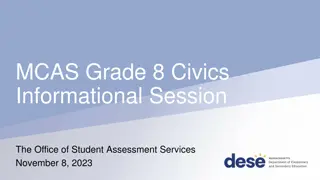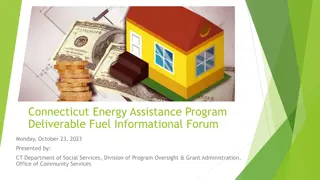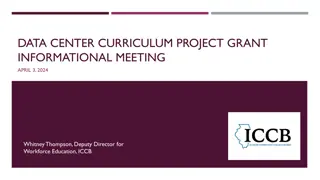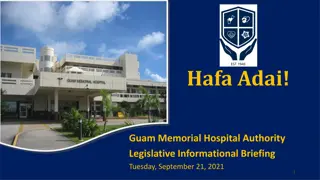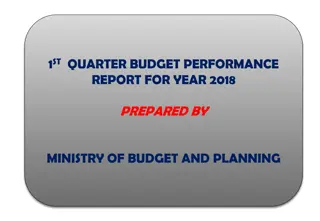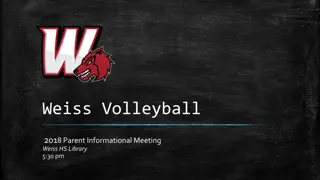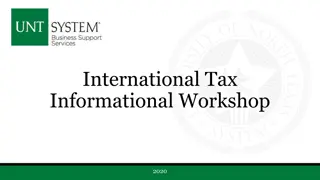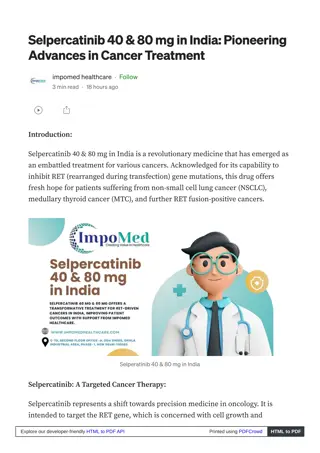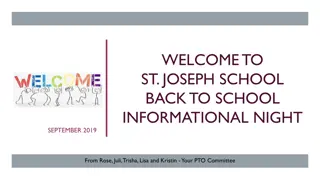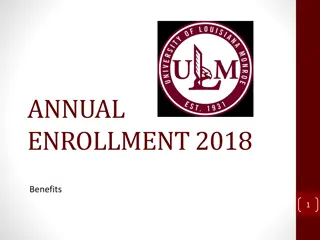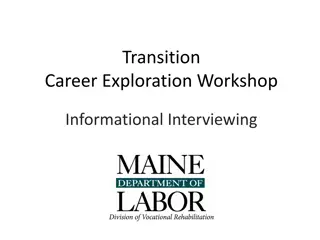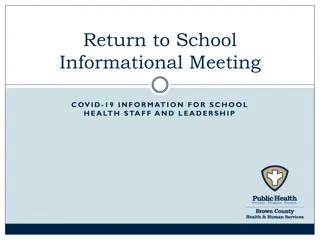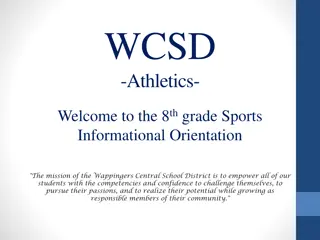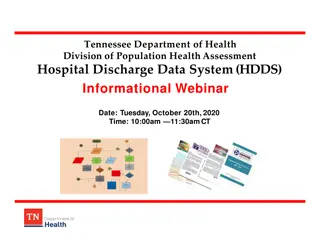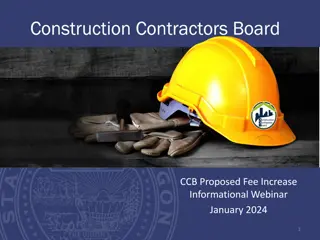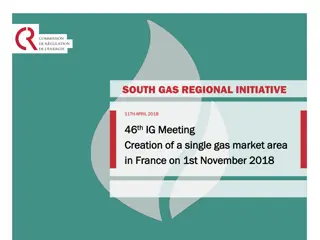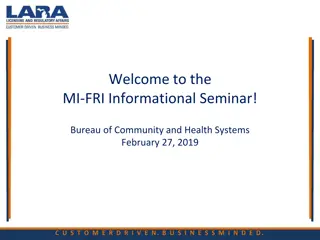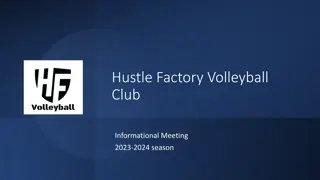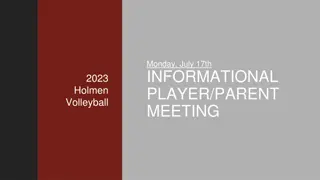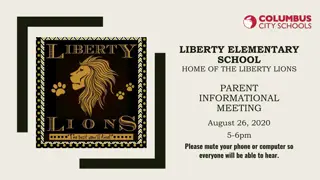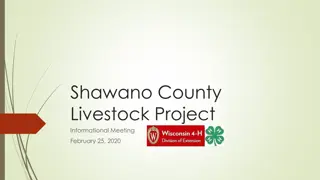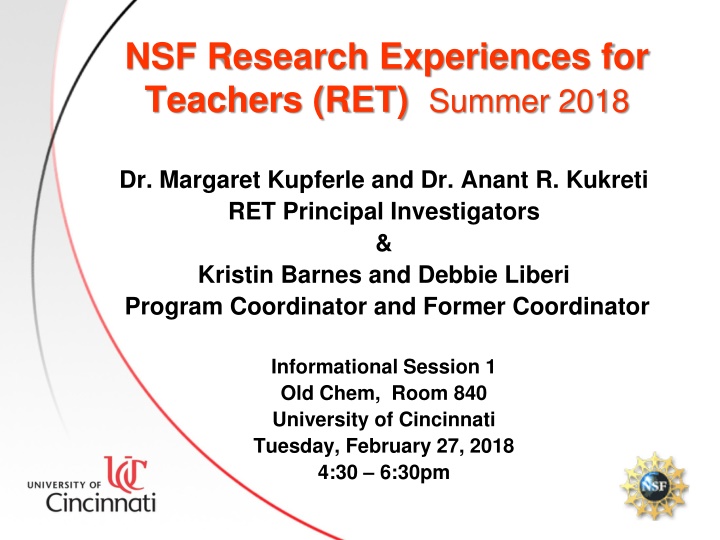
Enhancing Teaching Practices through NSF Research Experiences for Teachers (RET) Summer 2018
Explore the NSF Research Experiences for Teachers (RET) program at the University of Cincinnati, focusing on objectives, statistics, benefits, and success stories. Discover how RET encourages educators to implement new pedagogies, shift towards student-centered learning, and promote real-world applications in science and math classrooms. Join this initiative to improve teaching practices and inspire students towards engineering careers.
Download Presentation

Please find below an Image/Link to download the presentation.
The content on the website is provided AS IS for your information and personal use only. It may not be sold, licensed, or shared on other websites without obtaining consent from the author. If you encounter any issues during the download, it is possible that the publisher has removed the file from their server.
You are allowed to download the files provided on this website for personal or commercial use, subject to the condition that they are used lawfully. All files are the property of their respective owners.
The content on the website is provided AS IS for your information and personal use only. It may not be sold, licensed, or shared on other websites without obtaining consent from the author.
E N D
Presentation Transcript
NSF Research Experiences for Teachers (RET) Summer 2018 Dr. Margaret Kupferle and Dr. Anant R. Kukreti RET Principal Investigators & Kristin Barnes and Debbie Liberi Program Coordinator and Former Coordinator Informational Session 1 Old Chem, Room 840 University of Cincinnati Tuesday, February 27, 2018 4:30 6:30pm NSF Home Page
Agenda for Todays RET Informational Meeting Greetings and Refreshments (20-25 minutes) 4:30 - 4:45 PM, Old Chem, 840 Introduction Activity (20 min.) 4:45- 5:15 PM, Informational Power Point Session (15 min.) 5:15 5:30 PM Questions and Answers (15 min.) 5:30 5:45 PM Group Activity ( 30 minutes) 5:45 6:15 PM (If time permits.)
Introduction Activity Form two groups: You have 30 seconds to decide which 2 of the following items you will ask of each other. Then interview each other for 30 sec/person: Name, school and grade level. Greatest ongoing challenge you face as a teacher. 3 adjectives that best describe you as an educator. What drew you to apply to RET. What you biggest priority is as an educator. You will take turns introducing each other to the group. (30 secs/person)
Information about RET Summer 2018 1) Objectives 2) Statistics and Successes 3) Benefits 4) Research and Pedagogy 5) Support summer and school year 6) Typical day in the schedule 7) Questions and Answers
Objectives of RET Encourage teachers to incorporate new pedagogies (CBL and EDP) into their teaching practices. Move science and math classrooms from teacher centered to student centered learning environments. Develop classrooms that include real world applications in the teaching of content. Use engineering applications (A) to convey math and science concepts Encourage students to consider engineering careers (C) Show societal impact (S) Provide opportunity to students to experientially learn the 21st Century Skills
RET Statistics and Successes During Years 2009 2010 to 2016-17 and Fall of 2017 There have been 71 teacher participants From Cincinnati Public, suburban and rural districts Including Ohio and Kentucky Participating in 144 research projects Impacting over 3500 students
Benefits of Participation in RET Summer 2018 Professional Benefits: Participate in actual engineering research projects Take an engineering workshop entitled Engineering Foundations Participate in ongoing professional development Create a unit using Challenge Based Learning and engineering Design Process for your students in your classroom Prepare to present at professional conferences or submit journal articles Other: Earn $6000 Obtain a laptop for personal use $200 for classroom materials to support unit implementation Earn contact hours Form a Cohort with other professionals
Research Projects and Pedagogy Research Engineering research focuses on problem solving. Opened ended Models iterative process. Pedagogy Challenge Based Learning Students are led from the Big Idea Essential Question Challenge Challenge has multiple acceptable solutions Engineering Design Process Has an iterative structure that allows for testing and modifications for improvement
Ongoing Support Personnel Research Faculty Mentor (supervises research) Graduate Research Assistant (assists in conducting research) RET Resource Person (supports development of unit) Typical Workshops Offerings: Challenge Based Learning Engineering Design Process Conducting Research Use of Library Facilities Making posters and videos Writing journal articles
Three Typical Days for Comparison: Summer Schedule Week 1 Week 2 Week 5 9:00 AM 12:00 PM Engineering Foundations Workshop 9:00 AM 12:00 PM Research Training 9:00 10:30 AM PD: Video Workshop Session 2 10:45 AM 12:00 PM RET PD: Journal Writing Lunch Lunch Lunch 1:00 4:00 PM PD with CEEMS Teachers: Challenge Based Learning 1:00 2:30 PM PD with CEEMS Teachers: Templates required by Cohorts 2:45- 3:00 PM Progress Meeting with Faculty Mentor and GRA 1:00- 1:20 PM Progress Meeting with Faculty Mentor and GRA 4:15 5:15 Research Training Prep Completing the Roadmap 1:30 6:00 PM Conducting Research 3:15 6:00 PM Research Training
Questions regarding RET? Components? Key players? Objectives or benefits?
Group Activity Working in two groups, you will do the following activity: Consider the mission to send a manned spacecraft to Mars. What are the physiological stresses on the body caused by lengthy space travel under conditions of microgravity? Research and identify some of them. (Brainstorm or use your phone or laptops to research.) Prioritize the top 3 you have identified. Develop a system, regiment, or design products that will counter the effects of the physiological stresses caused by microgravity and describe how the system, regiment or products are utilized to produce the desired outcomes.

